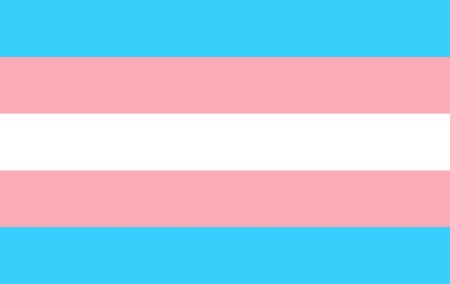While many people are celebrating International Pride month, there are reports that the numbers attending marches and rallies are declining, as is support for the LGBTQIA movement. To explain this merely as a result of a right-wing backlash shows a lack of understanding and an unwillingness to scrutinize the movement.
Even in South Africa, recent letters to the Daily Maverick from “heartbroken parents” of trans-identifying children show a dark side to the glittering unicorns and rainbows.
“Pride” has historically been a grassroots movement fighting for lesbian, gay, and bisexual (LGB) rights but; in the late ‘90s, the T was added to support transgender rights. In the 2000’s, it expanded into the LGBTQIA+ movement of today: championed by Hollywood, big business, Universities, medical professions, and so on.
But is it the same movement? Its focus is now on trans and other identity rights; it has new beliefs and language; and it has built “gender-affirming” care into a lucrative medical industry. Some LGB groups have split from the T+ and there is a bitter war between transactivists and some feminists.
Demonstrators at rallies wave banners threatening to “piss where we want to”; to force their male body parts into orifices of lesbians and “TERFs”, (Trans Exclusionary Radical Feminists) or to stab and kill them. A recent chant I heard was: “We’re here, we’re queer, we’re coming for your children.”
Born this way
The gay rights movement was about dignity and respect. It fought to legitimise same-sex attraction and gay marriage; and it celebrated effeminate men and masculine women. Its slogan, “Born this way” helped people to accept themselves as beautiful just as they were.
In contradiction, the LGBTQIA+ catchphrase “born in the wrong body”, leads people to reject their natural bodies. Identities rely on stereotypes; and new theories of gender identity state that one’s internal feelings of gender take precedence over biological sex.
A man who feels like a woman is, therefore, not just effeminate, but actually a woman. Every person has a right to their own beliefs, but forcing these beliefs on society has repercussions:
* Young children who believe they are the opposite sex are labelled ‘trans’ and set on a medical path with risks like infertility and sexual dysfunction. Statistically around 80% of children who identify as the opposite sex, if left alone, do not continue in this identity. Many are same-sex attracted. Some say we are “transing the gay away.” https://statsforgender.org/60-of-males-and-70-of-females-attending-the-worlds-largest-gender-clinic-gids-are-same-sex-attracted/
* Many young people presenting with gender dysphoria suffer severe comorbidities like depression, anxiety, ASD, or trauma. “Gender-affirming care” risks pushing them into irreversible medicalisation before exploring underlying conditions. Besides the psychological trauma if there is regret, there are some serious physical health risks associated with cross-sex hormones and surgeries.
Many people are hurt and angry: women prisoners, sportswomen, parents, lesbians, gay men, and those who regret their “gender-affirming” care. It is a rising anger and, once again, it is short-sighted to dismiss it all as right-wing or transphobic.
In South Africa, the number of people who identity as transgender and other different identities is growing. At the same time, the anti-gay dogma of many churches, the practice of “corrective rape” of lesbians, and hate crimes like the recent murder of gay imam Muhsin Hendricks have forced many gay people into living as the opposite sex – as a safer option. Thus “gender-affirming” care is a growing medical industry.
Pride marches
In our local Pride marches, I have not seen the harsh vitriol witnessed in other countries. Perhaps it is not too late for us to manage these complex issues with compassion and common sense.
Many people who are on cross-sex hormones, and even those post-surgery, fear being outed. They fear losing jobs and access to medical treatment; and they continue to fear attack due to prejudice and hatred. They deserve our deepest empathy; and, like all South Africans, must be protected and treated with respect and dignity.
This does not mean giving up women’s only spaces. We need to be sensitive to those who feel feminine or unsafe in male spaces. We must find alternative spaces and develop creative ways to be inclusive, to help all people feel safe and comfortable; to honour both masculinity and femininity in whatever form; and to enable all people to participate in sports fairly.
We need to protect children from harmful ideas spread by some schools and medical professions and on social media. Instead, let them learn that there are many different ways to be a boy or a girl; and focus on keeping their beautiful bodies strong and healthy.
We need to take heed of latest international research and reports that have found sparse evidence to support ‘gender-affirming’ care and caused many countries to re-evaluate their treatment of those presenting with gender dysphoria. Medical and therapeutic professionals must treat patients, not push any political agenda.
The emphasis on trans rights must not undermine the fight for gay rights. The danger in a homophobic society like ours is that we become like Iran where homosexuality is punishable by death, while sex reassignment is accepted – in Iran, by law; in South Africa, by the people.
We must continue fighting for basic human rights for all LGBTQIA+ people, but at the same time, stand against the more extreme and harmful beliefs, demands and practices of the movement.
On its current trajectory, I fear that the LGBTQIA+ movement is heading to crash and burn, taking many of the hard-won rights of the gay rights movement with it. For the sake of my own gender non-conforming children and many others, I hope to help change that trajectory.
The views of the writer are not necessarily the views of the Daily Friend or the IRR.
If you like what you have just read, support the Daily Friend

